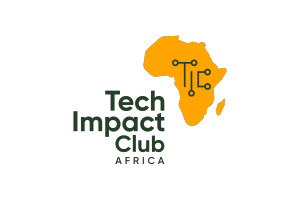
Despite Africa’s booming tech scene, a critical gap remains, and it’s gender-based. While women make up nearly half the continent’s population, they account for only 30% of tech roles. In software engineering, that number drops to under 20%, and in 2022, only 2% of VC funding went to women-led startups across Africa (Briter Bridges, 2022; IFC & Accenture, 2022).
This disparity is driven by multiple systemic issues: limited access to STEM education, funding inequality, and structural barriers to leadership. The gender gap in tech isn’t just a social issue. It’s a missed economic opportunity. And there’s no better time than now to bridge it.
Rising Against the Odds
In a space still largely dominated by men, African women are not just participating; they’re leading, innovating, and reshaping the ecosystem. Their stories are not only inspiring but also pivotal to Africa’s digital future.
There’s a popular saying that rings especially true in this context: “When you train a woman, you train a nation.” Across the continent, radical women in tech are building platforms that do just that—equipping thousands of others with the skills and support needed to thrive in technology.

Women-Led Startups Driving Economic Impact
Here are a few standout examples of African women building high-impact tech ventures:
- AkiraChix (Kenya) – Founded by Linda Kamau and Judith Owigar, AkiraChix is a women-only coding academy that trains young women from underserved backgrounds. One alumna, a mother of three with no university degree, now develops health management systems for the World Health Organization in Kenya.
- She Code Africa (Nigeria) – Launched by Ada Nduka Oyom in 2016, She Code Africa has grown into a continent-wide movement, reaching over 62,000 women across 20+ African countries with coding programs, mentorship, and career development opportunities.
- MainOne (Nigeria) – Founded by Funke Opeke, a seasoned telecom engineer, MainOne has been pivotal in transforming West Africa’s broadband infrastructure. Her work laid the foundation for many digital businesses across the region.
These trailblazers are not only building successful ventures; they’re creating pipelines of opportunity for the next generation of women in tech.
Bridging the Gap—One Startup at a Time
At Tech Impact Club, we believe in putting action behind advocacy. That’s why we’re committing $5,000 in seed funding to African startups that are:
- Providing inclusive tech solutions
- Empowering women through education or employment
- Actively working to close the gender gap in the tech industry
If you’re building something impactful or know a startup that fits this mission, we encourage you to apply today and share this opportunity with your network.
Conclusion
The future of tech in Africa must be inclusive by design—not as an afterthought. While the statistics paint a clear picture of disparity, the stories of women like Linda, Judith, Ada, and Funke show us what’s possible when women have the resources, access, and backing they deserve.
Let’s move beyond admiring the problem. Let’s fund, mentor, and support the women building Africa’s next big innovations
